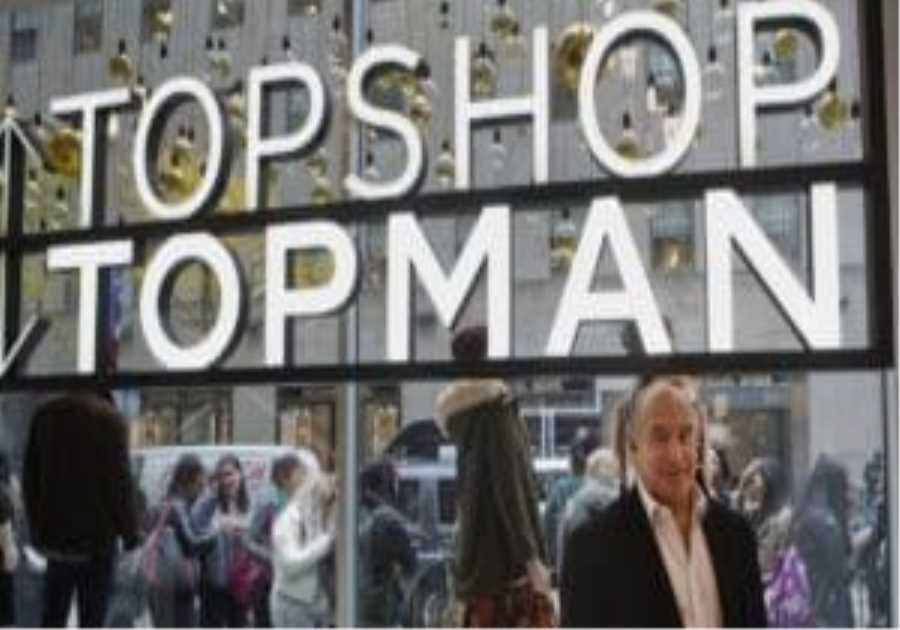It’s not often you see a supermarket make national news for not letting someone work for free. Usually the outrage runs in the other direction—“greedy corporations exploiting unpaid labour” and so on.
But today’s piece in The Telegraph about Waitrose and Tom Boyd, a 27-year-old man with severe autism, has managed to flip that script entirely. And in doing so, it has revealed something rather telling about the way big companies like to wrap themselves in the language of “inclusion” while quietly stripping the humanity out of it.
Tom, by all accounts, was a model volunteer. For four years, nine hours a week, he stacked shelves at the Cheadle Hulme branch. He turned up on time, was loved by staff, and—most importantly—he belonged. His mum, Frances, says he’d given more than six hundred hours of his life to that store. That’s not a “trial shift” or a “placement”. That’s a commitment longer than most marriages. And then, the moment she dared ask if he could be paid, Waitrose said no, and shut the whole thing down.
Now, if you’ve ever dealt with a big corporate HR department, you can almost hear the cogs whirring. Alarm bells, legal risk, safeguarding, health and safety. Someone in Bracknell probably got a “risk alert” email saying “URGENT: volunteer exceeding hours threshold, potential classification as employee.” So they did what corporates always do when confronted with something messy, human and potentially emotional: they pulled the plug.
This, I think, is what people mean when they talk about “the system”. It’s not some faceless cabal—it’s a spreadsheet somewhere, with a column that says “non-employees doing employee work = bad optics.” It’s the reflexive desire to tidy away anything that doesn’t fit the model. And in doing so, they managed to break the heart of a man who, according to his mother, only ever wanted to contribute—to belong.
Waitrose insists it’s investigating. They issue the usual boilerplate: “We work hard to be an inclusive employer… we partner with charities… we make reasonable adjustments…” All very fine. But if you need a PR statement to convince people you’re kind, you’ve already lost.
A Question of Value
The uncomfortable truth is that Tom Boyd was doing exactly what the supermarket assistant job description says: keeping the shelves full, products in the right place, the aisles tidy. The difference is that he wasn’t getting £12.40 an hour for it. He wasn’t even asking for that—his family said they’d accept two hours a week of paid work. Just something. Recognition. A sense that his contribution mattered.
But Waitrose couldn’t find room for that in the model. Apparently, you can sell “Essential Waitrose” beans at £1.20 but can’t accommodate an autistic man who’s been giving you free labour for years.
The irony is painful. In an age where every corporate press release bangs on about diversity, equity and inclusion, here’s a man who lived the spirit of inclusion far more genuinely than any policy ever could. He didn’t need a “neurodiversity awareness” training session; he needed a job. And the company, instead of seeing an opportunity to make good on its lofty slogans, treated him like a potential liability.
Waitrose isn’t uniquely wicked here. This is modern corporate Britain all over: risk-averse, image-obsessed, allergic to emotion. Somewhere along the way, kindness got corporatised. It’s been turned into a metric, a compliance box. “Inclusion” is a PowerPoint slide. “Compassion” is a campaign hashtag. And when an actual human being like Tom comes along—real, awkward, imperfect—they don’t know what to do with him.
So they hide behind “process”. They quote “policy”. And they convince themselves that they’re doing the right thing because the equality legislation file says so. The result? A man who once found purpose in stacking tins of tomatoes now sits at home, bewildered, while the store he loved continues to peddle organic quinoa and ethical olive oil under the banner of good living.
It didn’t have to be like this. Imagine the alternative headline: “Waitrose creates first supported employment role for man with autism.” Imagine the PR gold. The viral posts. The outpouring of goodwill. A small, practical act of inclusion, instead of the cold bureaucratic one we got.
I used to be associated with the UK’s first new-build dedicated school for children and young adults on the Autism spectrum, so I speak with experience when I say that there was a dozen different ways that Waitrose could have handled this and the way that they have just does not hold a candle to their so-called John Lewis Partnership, ‘partner’ benefits, which does include such things as paid parental leave and support for working families.
They could have given Tom a badge. A payslip. A Christmas card signed by the team. They could have said: “Tom, you’re one of us.” Instead, they told his mum the store was being “cleaned” so he wouldn’t be upset when they sent him away. The cruelty of that euphemism—“cleaned”—is almost Dickensian. It’s the kind of lie you tell a child about a dead pet.
This story touches something deeper than corporate policy. It’s about the meaning of work itself. For many of us, a job isn’t just about money. It’s about structure, community, identity. For someone like Tom, that’s magnified a hundredfold. The act of showing up, being useful, being part of something—that’s dignity. And we’ve built a world where that sort of quiet dignity has no line on the balance sheet.
Frances Boyd’s heartbreak is palpable not because her son was denied pay, but because he was denied belonging. She knows that his “limited language” doesn’t mean limited feeling. She knows how much it mattered to him to have colleagues, a uniform, a role. And she knows that behind the green aprons and organic lemons, there’s a company that forgot what kindness looks like when it isn’t printed on a marketing brochure.
I don’t think Waitrose meant harm. That’s the saddest part. They thought they were doing the “proper thing.” The compliant thing. But doing the proper thing isn’t always doing the right thing. Sometimes decency requires bending a rule, writing a small cheque, taking a risk.
They told The Telegraph: “We are sorry to hear of Tom’s story, and whilst we cannot comment on individual cases, we are investigating as a priority.”
Tom Boyd’s story is a reminder that business isn’t about policies—it’s about people. It’s about the small acts that don’t make the quarterly report but define a company’s soul. Waitrose, for all its premium polish and “inclusive employer” copywriting, has shown us what happens when compassion meets compliance—and compliance wins.
If this is what “doing the right thing” looks like in 2025, maybe we all need to ask whether the moral till’s coming up short.
Read more:
Waitrose’s kindness gap: how a supermarket lost its humanity
Read More
By: Richard Alvin
Title: Waitrose’s kindness gap: how a supermarket lost its humanity
Sourced From: bmmagazine.co.uk/opinion/waitrose-volunteer-autism-compassion-business/
Published Date: Wed, 22 Oct 2025 14:12:37 +0000
.png)





